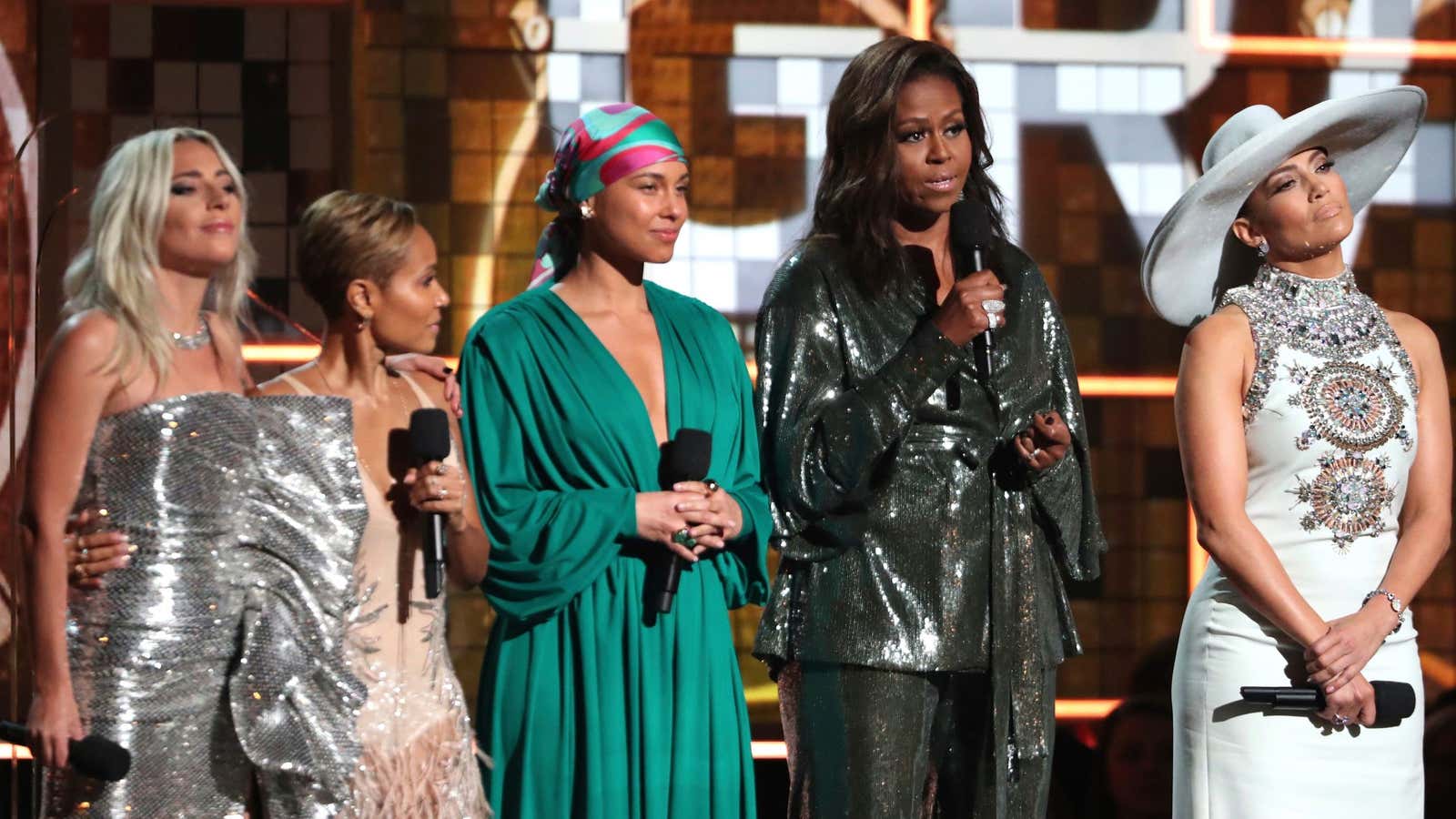A year after the Grammys were deservingly called “irrelevant” at best, “sexist” and “racist” at worst, the world’s biggest night in music took a small but palpable step forward.
Increasingly more of a collection of performances than a show about awards, tonight’s (Feb. 10) Grammys finally decided to highlight some of the women—past, present, and future—who represent popular music. Of the show’s 18 performances, 14 were either a solo female act or an ensemble led by a woman. Last year, only seven of the 20 performances were women-centric.
The night started with Cuban-American pop star Camila Cabello performing her Latin fusion hit “Havana,” and was capped off with singers Yolanda Adams, Fantasia, and Andra Day belting out a touching tribute to the late Queen of Soul, Aretha Franklin.
In between, Miley Cyrus, Katy Perry, Maren Morris, and record of the year winner Kacey Musgraves performed a tribute to Dolly Parton (which included Parton herself); host Alicia Keys played two pianos simultaneously in a gorgeous medley of previous winning songs; Jennifer Lopez and Smokey Robinson led a tribute to Motown, and Diana Ross sang her 1970 ballad “Reach Out and Touch (Somebody’s Hand),” among several other notable performances.
But it was the former US First Lady who brought down the house, before she could even really speak.
Michelle Obama surprised everyone when she appeared on stage toward the beginning of the show alongside Keys, Lady Gaga, Lopez, and Jada Pinkett Smith, to discuss the power of music and inclusion. “Music helps us share ourselves, our dignity and sorrows, our hopes and joys,” she said, to rapturous applause from the room full of star-struck celebrities. “It allows us to hear one another, to invite each other in.”
It was a smart move for the Grammys, which has been bleeding viewers as it struggles mightily to reflect the diverse state of popular music, to bring out the most popular woman in America to preach equality and empowerment. Still, it would have been an empty gesture had the night not actually made some strides toward those ideals.
In addition to the bevy of great performances by women, the awards themselves showed a bit more diversity than usual (though they still have a long, long way to go). None of the “big four” awards went to white men: Donald Glover, also known as Childish Gambino, became the first hip-hop performer to win song of the year (he also won record of the year). Country artist Kacey Musgraves won album of the year, Dua Lipa won best new artist, while Cardi B became the first solo female to win rap album of the year.
But even as it tries to become more diverse, the Grammys are still constantly getting in its own way. Longtime executive producer Ken Ehrlich publicly feuded with pop star Ariana Grande in the days leading up to tonight’s show; Grande claimed the producers wouldn’t let her express herself creatively and sing what she wanted to sing. (And yet they allowed an abominable Post Malone collaboration with the Red Hot Chili Peppers?) Meanwhile, hip-hop icons Kendrick Lamar, Drake, and Childish Gambino all declined offers to perform at the awards, though all three won at least one award.
The Grammys were better this year, but it was hard for them not to be. The real test will be if they can build on this progress next year and resist falling back into homogenous irrelevance.
